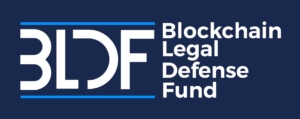The SEC vs. PulseChain and Richard Heart: Understanding the Legal Stakes
In the ever-evolving world of cryptocurrency, regulatory scrutiny continues to shape the landscape. One of the most significant legal battles in 2024 involves Richard Heart, founder of Hex, PulseChain, and PulseX, facing a lawsuit from the U.S. Securities and Exchange Commission (SEC). The SEC alleges that Heart conducted unregistered securities offerings, raising more than $1 billion from investors.
Background on Richard Heart and His Projects
Richard Heart, known for his outspoken persona in the crypto community, launched several blockchain projects, including Hex, PulseChain, and PulseX. These projects quickly gained attention for promising high returns on investments and being marketed as revolutionary in the crypto space. Hex, for example, is touted as a high-interest blockchain certificate of deposit, while PulseChain aims to improve upon Ethereum by offering faster transactions and lower fees. PulseX is a decentralized exchange on the PulseChain network, providing liquidity and trading options.
The SEC’s Allegations Against Heart and His Projects
In July 2023, the SEC filed a lawsuit against Richard Heart and his unincorporated entities, Hex, PulseChain, and PulseX. The complaint, filed in the U.S. District Court for the Eastern District of New York, accuses Heart of raising over $1 billion through unregistered securities offerings. The SEC claims that Heart marketed these tokens — Hex, PulseChain (PLS), and PulseX (PSLX) — as securities, thus requiring registration with the SEC.
According to the SEC, Heart’s promotional activities targeted U.S. investors directly, making virtual appearances at events and podcasts to market these tokens. The SEC also alleges that Heart defrauded investors by misappropriating at least $12.1 million of PulseChain investor funds for personal luxury purchases, including a 555-carat diamond, expensive watches, and high-end automobiles.
Heart’s Motion to Dismiss and the SEC’s Response
Following the SEC’s lawsuit, Richard Heart’s legal team filed a motion to dismiss the case. Heart’s defense argued that the SEC lacked jurisdiction over him because he resides abroad and did not engage directly with the U.S. market. The motion contended that Heart’s activities were not explicitly aimed at U.S. investors and that the SEC’s jurisdictional reach should not extend beyond U.S. borders.
However, the SEC countered this argument by highlighting that Heart’s promotional efforts were indeed targeted at U.S. investors. The SEC emphasized that Heart made significant efforts to market his projects to a U.S. audience, thereby falling within the agency’s regulatory purview. The SEC’s opposition to Heart’s motion to dismiss reflects its broader stance of actively pursuing cases where U.S. investors are involved, regardless of the physical location of the defendant
The Legal Framework: Understanding Securities Law and Jurisdiction
Under U.S. securities law, any offering of securities must be registered with the SEC unless an exemption applies. The SEC uses the Howey Test to determine whether a transaction qualifies as an investment contract and thus a security. The test examines whether there is an investment of money in a common enterprise with the expectation of profit derived from the efforts of others.
In Heart’s case, the SEC argues that the tokens offered through Hex, PulseChain, and PulseX meet the criteria of securities under the Howey Test. By marketing these tokens as pathways to wealth, promising significant returns, and emphasizing Heart’s role in managing and developing the projects, the SEC asserts that these offerings should have been registered.
Implications for the Cryptocurrency Industry
The SEC’s case against Richard Heart and his projects highlights the increasing regulatory scrutiny faced by the cryptocurrency industry. For developers and entrepreneurs, this case serves as a critical reminder of the importance of understanding and complying with securities laws. The outcome of this case could have far-reaching implications, potentially setting a precedent for how similar cases will be handled in the future.
If the court rules in favor of the SEC, it could lead to more stringent regulations and enforcement actions against other projects that operate in the grey areas of securities law. This might also deter innovation by creating a more challenging regulatory environment for new blockchain projects. Conversely, a ruling in Heart’s favor could embolden other crypto projects to challenge the SEC’s reach and assert more aggressive defenses against regulatory actions.
Reputation Management and Industry Perception
For Richard Heart, maintaining his reputation amidst these allegations is crucial, especially given his role as a public figure in the crypto community. The accusations of misappropriating funds for personal luxury items have already attracted negative attention, which could impact his credibility and the perceived legitimacy of his projects.
For the cryptocurrency industry as a whole, cases like this highlight the need for transparency and ethical conduct. As the industry matures, adhering to regulatory standards and maintaining trust with investors will be essential for long-term success. Companies and projects that prioritize compliance and transparency are likely to gain a competitive edge in a landscape increasingly defined by regulatory oversight.
The SEC’s lawsuit against Richard Heart and his projects, Hex, PulseChain, and PulseX, underscores the regulatory challenges facing the cryptocurrency industry. As the case progresses, its outcome will likely have significant implications for how the SEC and other regulatory bodies approach similar cases in the future. For crypto entrepreneurs and investors, staying informed about these developments and understanding the legal landscape is more important than ever. Navigating these complexities with a commitment to compliance and transparency will be key to thriving in the evolving world of digital assets.






Leave a Reply
Want to join the discussion?Feel free to contribute!